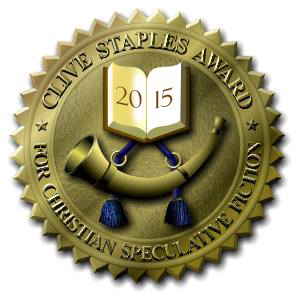Awards And The Problems Behind Them
 I’ve stopped watching the Oscars and the Emmys. For the most part, the nominated artists or works don’t reflect my tastes or standards, and they often honor people and stories I am not familiar with (so I have no one to cheer for). A lot of people I’ve come in contact with have expressed similar reactions.
I’ve stopped watching the Oscars and the Emmys. For the most part, the nominated artists or works don’t reflect my tastes or standards, and they often honor people and stories I am not familiar with (so I have no one to cheer for). A lot of people I’ve come in contact with have expressed similar reactions.
Apparently book awards not only face the same kind of irrelevancy, they are subject to rebellion of sorts, as demonstrated by this year’s Hugo Award, given annually for the best science fiction or fantasy works and achievements of the previous year.
Currently the Hugo Award is presented in twelve different categories (novel, short story, fan artist, professional artist, novella, graphic story, dramatic presentation, and so on). Voting for the Hugo Awards is open only to supporting and attending members of the 2015 World Science Fiction Convention, or Worldcon, making it a type of award akin to the Oscars. In other words, professionals vote.
To make a simulated comparison, the Hugos would be like the ACFW Carol Awards, if those would be voted on by their members. They aren’t selected in this way, however, which makes them distinctly different in reality.
Historically Hugo Awards were given to white males, but that trend had begun to change until “last year’s awards were swept by writers of color and women” (“Hijacking the Hugo Awards Won’t Stifle Diversity in Science Fiction” by Kameron Hurley).
As might be expected, this change brought about a reaction—a concerted, organized effort to return to the white, male domination of the awards. “Some aren’t happy about that [last year’s domination of awards by people of color and women]. For the last three years, [novelist Larry] Correia has led a small but vocal anti-progressive campaign called Sad Puppies in an attempt to game the Hugos by mobilizing people to vote for its preferred choices” (Ibid).
 The result of the efforts by this collection of “conservative” members of the World Science Fiction Convention paid off: “this year, Sad Puppies, buoyed by [Theodore] Beale’s [AKA Vox Day] more extreme, Gamergate-affiliated campaign Rabid Puppies, managed to secure the extra votes needed to dominate the nominations. The result? They managed to push out those seeking to make the Hugos more representative of the diverse works within the genre” (Ibid).
The result of the efforts by this collection of “conservative” members of the World Science Fiction Convention paid off: “this year, Sad Puppies, buoyed by [Theodore] Beale’s [AKA Vox Day] more extreme, Gamergate-affiliated campaign Rabid Puppies, managed to secure the extra votes needed to dominate the nominations. The result? They managed to push out those seeking to make the Hugos more representative of the diverse works within the genre” (Ibid).
So, admittedly, some were making an intentional effort to diversify the awards, not merely vote for the most qualified person or work.
Consequently, at the heart of the backlash against the trend away from white male domination of the award is the belief that “Worldcon and fandom alike have tended to use the Hugos as an affirmative action award: giving Hugos because a writer or artist is (insert underrepresented minority or victim group here) or because a given work features (insert underrepresented minority or victim group here) characters” (Sad Puppies 3 leader Brad Torgersen as quoted in “Science Fiction’s White Boys’ Club Strikes Back” by Jeet Heer).
While “block voting” is not against any Hugo Award rules, it apparently hadn’t been done before, at least not in a concerted, organized way. When the short list of finalists came out in April, controversy erupted. At least one presenter stepped down, several nominees had their names/works removed from the short list, and several others, who responded after the ballot had gone to print, have made it known that they should not be considered for the award and will not accept it should they win.
The irony of the brouhaha is that the Puppies seem to be arguing against the politicizing of science fiction and it’s preeminent award by politicizing the method used to select the award winners.
Having been behind the scenes for the Clive Staples Award in the past, I know a good deal about the ways people try to game the rules in order to help those they hope will win. One reason CSA instituted judging the short list—the finalists—by a panel of qualified judges was to avoid this kind of deck-stacking which would reduce the award intended to honor good writing and storytelling to a popularity contest (or a philosophical statement).
Yes, there are diversities among Christian writers, and some would push the point by “gaming” an award if they could.
Other awards have bypassed readers altogether in order to steer away from the popularity contest approach (come vote for my book even though you haven’t read it, just because you know me, sort of). But those are susceptible to other problems—unqualified first round judges, high entry fees, sponsoring organization promotion requirements, poorly conceived judging sheets, and the like.
In short, no award is likely to be perfect, but one that combines readers’ choice with qualified judging evaluations seems as if it has a better chance of honoring the year’s best book.
The Hugos? Seems to me they have gone the way of the Oscars and in the process have opened the door to a horrible mess. This long-running award is in the process of making itself irrelevant to readers.
The Clive Staples Award, on the other hand, is a tool which can help readers learn about the books that other readers value. Consequently, I’m posting the list of semifinalists again (alphabetized by title). I encourage you to put the books that have the greatest appeal onto your reading list. Mark them at Goodreads as Want To Read. Post reviews about them when you finish. Let’s use the CSA as it’s intended—to help readers find the best books of Christian speculative fiction.
A Draw of Kings Patrick W. Carr, published by Bethany House Publishers
A Time to Die by Nadine Brandes, published by Enclave Publishing
Blood for Blood by Ben Wolf, published by Splickety Publishing Group
Golden Daughter by Anne Elisabeth Stengl, published by Rooglewood Press
Haunted by Charity Tinnin, self-published.
Merlin’s Nightmare by Robert Treskillard, published by Blink
Reapers by Bryan Davis, published by Scrub Jay Journeys
Resistance by Jaye L. Knight, Living Sword Publishing
Saving Yesterday by Jessica Keller (Evander), published by Phantom Ship Press
The Seahorse Legacy by Serena Chase, published by Candent Gate LLC
The Seventh Door by Bryan Davis, published by Living Ink Books
The Warden and the Wolf King by Andrew Peterson, Published by Rabbit Room Press










































Re: Sad puppies, their goal was to wrest the award away from liberals who only awarded liberals, and nominate/award conservative authors. Jim freaking Butcher has NEVER been nominated for a Hugo! That was all Sad Puppies was trying to do, and they succeeded in getting a nice mix of liberal/conservative names on the ballot. What’s more, they introduced the public to loads of new authors they’d never heard of before.
So keep in mind, there’s two sides to the Hugo debate.
IMO contests are good for exposure, and nothing else. And if it’s a tiny little contest that costs fifty bucks to enter? No thanks.
Personally, I have a problem with the idea of awards and contests in general. Writing is an effort of a writer to communicate with a reader. Any time it becomes a competition, it leaves the reader sitting on the sideline, except possibly as someone I can manipulate into voting for me.
And for the Christian there is the added element of pride. I know people say there is good pride and bad pride, but that is not Biblical. One can take satisfaction in a job well done, but that is not pride. Pride is a belief that oneself or ones work is better than that of another. Pride doesn’t say I am competent. Pride says I’m more competent than you. Awards, particularly those in which the author submits his or her work for judging, is an invitation to prideful ambition. I know some strong person can avoid it and say they are only doing it for the critique and might actually be honest about it. However, those are few and well between.
And the flip side of the pride issue is the “failure” issue. If one doesn’t place, one might consider that piece of writing worthless. However, I’ve discovered over the years that there is often a difference between books that win prizes and books that communicate well to average readers. But regardless that, many non-prize winners can do quite well in the marketplace, which, if we want to be honest, is the only “contest” that counts.
I understand what you’re saying, Terri, but I’m not sure it’s necessary to cancel awards and contests because some people might succumb to pride. As Kessie said, the greatest award of an award is recognition, and that’s really the goal of the CSA as well.
Becky
It is absolutely ludicrous to claim that the Sad Puppies campaign is about race, and also ludicrous to associate it with the Rabid Puppies campaign (https://bradrtorgersen.wordpress.com/2015/04/16/we-are-not-rabid/). That’s the sort of slander directed at it from its detractors. If you read anything written by the Sad Puppies themselves, it immediately becomes clear that what they’re doing is entirely about ideology and civic engagement.
How ludicrous is it to claim that the Sad Puppies campaign is about “a return to the white, male domination of the award”? So ludicrous that even Tor’s own Tom Doherty has publicly repudiated the notion (http://www.tor.com/2015/06/08/a-message-from-tom-doherty-to-our-readers-and-authors/).
For a fair-minded critique of the fracas, I’d recommend starting with this analysis: http://www.contrapositivediary.com/?p=3432. And if you’re interested in what Larry Correia has to say for *himself*, you can check it out here: http://monsterhunternation.com/2015/04/06/a-letter-to-the-smofs-moderates-and-fence-sitters-from-the-author-who-started-sad-puppies/.
It would be Larry Correia. I don’t really know how to feel about it, being torn between seeing it as a grassroots movement or just gaming the system. It does look questionable, Correia doing some carnival-barking when he’s got dogs in this fight, but he’s generous enough to like to see the Hugo go to someone else — as long as it’s not a “pantywaist liberal” (That’s one of my issues with him; he uses a hella lot of feminizing language as insults).
Personal dislike for Larry Correia’s use of well-established, well-tolerated emasculatory adjectives is all well and good, but that’s neither here nor there when it comes to painting his get-out-the-vote campaign as the racist blowback of angry white males, as this article has done. While your milage may vary on Correia’s use of fightin’ words, there is zero basis for claiming that the Sad Puppies are concerned with anything other than ideological diversity and the democratization of the Hugo nominating process.
Eh, it being well-established doesn’t make it any less rooted in sexism, and you can bet the wellness of its toleration depends greatly on the audience.
But “ideological diversity” is certainly an…interesting way of phrasing it, though I’d hesitate to a setup diverse if there only seems to be two flavors, “American conservative” and “American liberal.” Off the top of my head, I don’t know if the Hugo is American-only or just English-only, but I can tell you that isn’t nearly enough giant fighting robots for it to reflect a multicultural approach.
Actually the Hugos are also open to translations, so they do include multicultural options. How may, is another matter.
Becky
The little Japanese SF I’ve read is more like Ghost in the Shell: Innocence. Dense, talky hard SF, no giant robots to be found. Yukikaze is another example, and Loup-Garous too. All You Need is Kill is probably the best example why it doesn’t get much traction-the book is insanely dry compared to the movie Edge of Tomorrow.
Heh. You’re probably right about that, and Correia would probably be the first to encourage you to nominate whatever giant-fighting-robot fiction you deemed worthy of others’ attention. His own works are, as I understand it, far from “literary.”
By the way, did you know that next year, the fourth iteration of the Sad Puppies campaign will be organized by a woman? It makes no difference to me, but methinks it’s quite a stick in the eye to people who think the campaign has anything to do with sexism.
Great summary, Austin. I’m very disappointed in the author’s poor research on this topic.
Tim, by “the author,” are you referring to me or to the article writers I quoted?
I’m not sure through what lens you read this post. I hope you realize I was not approving or disapproving of what has taken place in the past or what has happened this year in regard to the Hugos.
The point of my article is that the way the Hugos are determined lends itself to political wrangling and ultimately irrelevancy. Having readers vote—more of a Golden Globe approach—has a big advantage by taking the award out of the hands of the professionals . . . except, that method has problems, too. Hence, a combination, which involves readers and a panel of judges, really seems like the best approach.
I hope readers take advantage of what the Clive Staples Award provides—a great list of books other readers liked and voted for.
Becky
Thanks for the links, Austin. Just to clarify: the article I quoted isn’t saying the Sad Puppies and the Rabid Puppies were working as a team but that the Rabid Puppies, by coming into the fray, tipped the scale and allowed he Puppy-favored slate of nominees to reach the short list.
I find it so interesting that those most upset with the situation seem to have no qualms admitting that they were intentionally trying to diversify. In other words, from where I sit, it seems both sides are trying to do the same thing, but this year, the Puppies did it better.
Becky
From what I can tell, the Sad Puppies’ argument has always stipulated that quality ought to constitute the sole criterium for the Hugo award, but that a clique of powerful progressives has lately been ignoring any and all eligible works that don’t happen to fall in line with its sociopolitical agenda, or whose authors aren’t in good standing with the SJW crowd. In fact, the term “Sad Puppies” originated in Correia’s quip that “boring message fiction is the leading cause of puppy-related sadness.”
So it’s inaccurate to say (as I may have inadvertently insinuated) that the Sad Puppies are advocates of diversity for its own sake; they simply see quality fiction routinely passed up because it’s not “diverse” (read: “progressive”) enough, and they want to return quality to its rightful preeminance.
Good post. As a first-time Hugo voter, I have a serious problem with the claim that the Hugos needed to be “wrested away from liberals,” since the only three titles that leaned liberal, as cited by the Puppies, are Red Shirts, Ancillary Justice, and “if you were a dinosaur, my love.” That’s out of ten years (at least, that’s the length of time SP3 organizer Brad Torgersen claims). I spent a long time on Brad’s blog trying to get more specific titles that won or were nominated due to politics in the Novel, Short Story, Novellette, and Novella categories, and got nothing. One poster did, however, specifically claim that there was a secret campaign to get Scalzi nominated and then give him a Hugo for “Red Shirts.” Said poster had no evidence to back this up. Another said “Ancillary Justice” was ‘horrid’ then admitted he had not read ‘Ancillary Justice.’
In the very. Next. Sentence.
It’s not so much pro-white-male as it is pro-cronyism, but one of the reasons there’s so much anger is that the Puppies are running around making serious claims about the Hugos–that they’ve been in liberals’ clenches for ten years–and then, when I ask for specifics, I get the above. Which is to say, nothing. No evidence, and a bunch of irrelevant stuff like that Firefox guy getting fired, which has nothing to do with Worldcon or the Hugos.
I’ve actually read Red Shirts, and I really don’t get how it’s supposed to be liberal, except for the fact it’s by John Scalzi, and then it seems less about the work in particular and more about cronyish bullhonkey.
In my opinion, a lot of this just comes down to privilege distress. It reminds me of that study where men thought 30% of a room being women made the representation equal, and an actual 50% was skewed in women’s favor.
Haven’t really read it, but there’s a bias with liberals where they define their views as centrist, and ultra-liberal views as liberal or maybe progressive. Like gay marriage? centrist. Polyamory acceptance is progressive though.
It’s tough in SF in general because a lot of modern fans aren’t well read. If you read the classics, you get a better balance. Bradbury is conservative, old school; you can tell because he isn’t afraid to talk about religion while not being dogmatic. You can get writers like Greg Bear, who is liberal-atheist, alongside Gordon Dickson, who is conservative-mystic, and more. But I think a lot of the modern set has been progressive mostly, and it skews how people view the genre.
Except Red Shirts is a meta-narrative with meta-humor about the absurdities of a sci-fi show transposed to real life, which would mean Lt WhippingBoy would be kidnapped and/or mostly dead at least once a month. Pretty much nothing gay about that.
(Also, gay marriage is pretty much centrist now, what with the majority of the American population, despite including Christians, being perfectly okay and/or indifferent about it. It’s pretty natural to assume the view that you’re in the middle of a continuum, which is what you just did yourself.)
Well, that was just an example. I mean in general, liberals tend to not see the biases or cultural tics they have as particular to them. They think it’s just what everyone does, and tend to not realize others don’t see that. SSM is not centrist-it wouldn’t have to be legislated through the courts if so, and it’s like saying being pro-choice is centrist. Both are disputed positions; the thing is an average liberal would be shocked to see that one of their friends held the opposite position.
With SF, you get things like the utter lack of positive religion. It’s refreshing to read old-school authors like Bradbury, who isn’t afraid to actually write about it without making everyone evil fundamentalists. Or sex-vanilla monogamy gets surprisingly hard to find. You look at a “conservative” author like Heinlein, who gets very bizarre outside of the one novel of his conservatives like. People don’t realize their internal baseline is shifted, not that the center is really the center.
Excuse my frankness, but so what? Why do the Sad Puppies have to justify their level of civic engagement to you? They’re operating within the rules, they claim to love the award and want it to succeed, and they’re not doing anything that can’t be counteracted if enough people disagree with them. In other words, what they’re doing isn’t destructive in the slightest, so what does it matter that you that you don’t agree with their reasoning? Obviously, your side is outnumbered on this issue. What, are you gonna tell them they shouldn’t nominate and vote for stories they like? What’s the big problem here?
Thanks for your feedback, Greg. Some of the critics I read agreed with you, citing a number of popular past winners who were diverse in their political and religious persuasions (because, apparently, some criticism of the Hugos said they were not faith friendly). George Martin ( http://grrm.livejournal.com/418285.html ) wrote a particularly long post refuting the criticisms of the Puppies. He summed them up in four points then went about explaining why he was saying they weren’t true.
At one point, in showing that there was no liberal lock on the award in the past ten years (I think that was his point), he said
I think the pro-cronyism is a great enough charge. I don’t like it when the “in crowd,” in control of the whole thing (whatever that “whole thing” might be) ends up winning it all.
I remember a number of years ago reading Nancy Kress’s blog where she mildly complained about awards and the lack of recognition women sci fi writers received. Was that gender bias or voting for the guys you know the best and hung out with?
But is the answer to go out and intentionally vote for women regardless of the quality of their work? (Sort of like searching for the token woman to put on the twenty dollar bill). And is the backlash answer—to vote for a different set of cronies—going to solve anything?
No, I think it’s actually created a political divide that might be beyond healing.
Becky
I think it’s more you assume the titles are “centrist” when they are liberal. I mean, it’s hard to see The Wind-Up Girl or anything by China Mieville as conservative, and Ian Banks especially would hardly be such. Kim Stanley Robinson is such. You’d have to go back to Stephenson to find something conservative, and he’s more libertarian. Looking at the list, you can see in later years sort of an “old guard” appear: Scalzi is nowhere near a good enough writer to get the nominations he does, and Stross/Banks are very much an ideological taste. Honestly if not for Bujold it probably would have been even further left, but she writes too well to be ignored.
SF has always leaned liberal/transgressive though, especially in the magazine/con culture. And tbh, it’s really sucked the past few years. Maybe its because they ghettoized/ self-segregated conservatives in military SF, or maybe because we lost any real “good future” we can all agree on.
All this makes me want to vote in the Hugos without paying too much attention to blogs, as a sort of community service. I’m adding it to the list of things I would do if I weren’t a loser.
Interesting discussion, if nothing else. It’s interesting to see one of the Speculative Faith editors quoting George R.R. Martin favorably in the comments. I don’t mean this as an accusation. It goes to show that people and positions are flexible and complicated.
As an ex/wannabe SFF fan, I have no idea what the ideological spectrum is, but I badly wish I were qualified to talk about it.